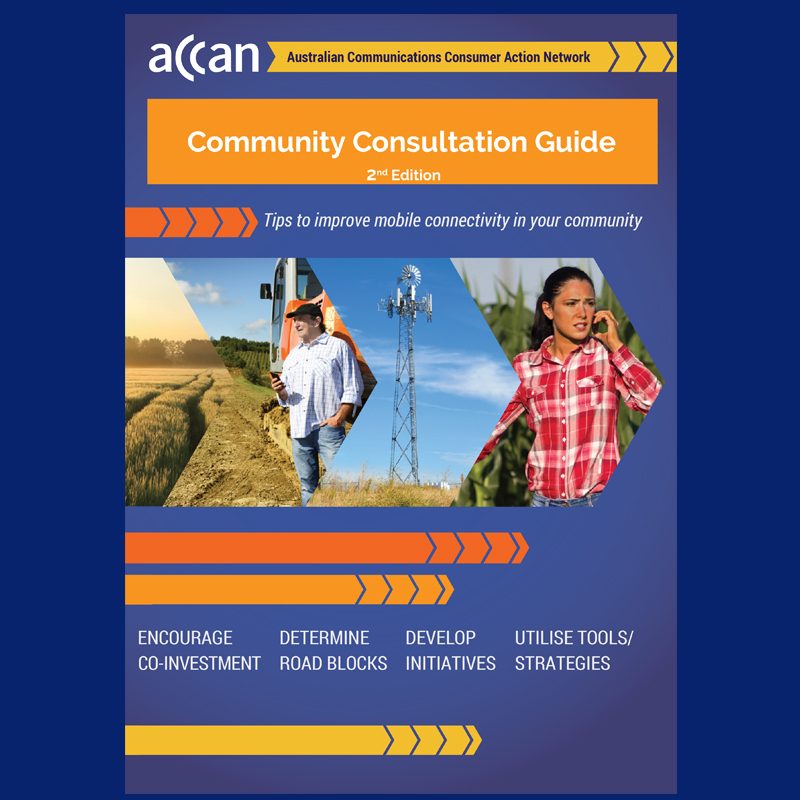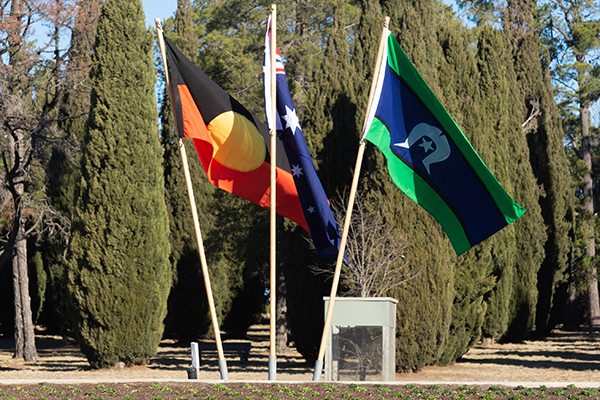Our focus
- Details
- Submissions
ACCAN believes the Telecommunications Industry Ombudsman (TIO) is constrained by its current governance structure and limited resources to truly reach its potential. The TIO needs to modernise and come into line with other industries, most notably to meet the benchmark set by the Financial Ombudsman Service.
- Details
- Submissions
Submission by ACCAN to the Telephone Information Services Standards Council (TISSC) Code of Practice Remedies Review
The TISSC is an independent regulatory body that sets standards in the form of a Code of Practice, for the message content and advertising of premium rate telephone information services, including numbers beginning with the prefixes 190 and 01972.
ACCAN strongly supports TISSC and the important work that it has carried out in both handling complaints relating to the TISSC Code of Practice (the Code) and in monitoring industry compliance with Code rules. We believe that the existing levels of complaint and accompanying definitions are not sufficiently clear and differentiated from one another.
- Details
- Submissions
Submission by ACCAN to the Australian Communications Media Authority regarding the 'Structure of Australia’s telephone numbering plan' consultation.
This submission addressed questions raised regarding geographic numbering. The views in this paper should be considered alongside ACCAN's recent super-complaint about charges incurred from mobile calls to 13, 1300 and 1800 numbers.
Read more: Structure of Australia’s telephone numbering plan
- Details
- Tip sheets
![]()
Easy English focuses on presenting key information rather than all the detail. Words are combined with images to enhance the message for the reader. Ideally, reading an Easy English document is a shared activity between the reader and another person, such as a friend, a family member or support person.
ACCAN has produced the following guides in Easy English.
Read more: Information in Easy English
Write comment (0 Comments)- Details
- Tip sheets
Throughout our lives, we accumulate a variety of assets. In the past, these have traditionally included things such as houses, cars, finances and other tangible possessions. These assets are considered when drawing up a will in the event of our passing.
Read more: How to prepare your digital legacy
Write comment (0 Comments)- Details
- Tip sheets

![]() Community Consultation Guide5.36 MB
Community Consultation Guide5.36 MB
ACCAN has launched the 2nd Edition of the Community Consultation Guide. The Guide is designed to help communities address issues with mobile coverage in their areas.
Mobile coverage is a key issue for consumers, particularly those in regional, rural and remote Australia. Achieving improvements in mobile coverage is a priority focus of ACCAN's work. The Mobile Black Spot Programme will deliver improvements to mobile coverage, but the demand for these improvements will far outstrip supply.
Read more: Mobile Blackspots - Community consultation guide
Write comment (0 Comments)- Details
- Tip sheets
In a project funded by ACCAN, researchers at The University of Sydney analysed 61 top-rated mental health apps available to Australian consumers.
Mental health apps commonly collected consumer data, requested that consumers make in-app purchases, and made health claims. Although this is normal in the app world, we thought, “How would this stand up in the real world?”
![[Jane looking at the hand massage signs. Thinks, “hmmm…just what I need”]](/images/content/Article%20pictures/Panel1_v2.jpg)
Read more: Navigating mental health apps
Write comment (0 Comments)- Details
- Tip sheets
 Do you sometimes act as a ‘proxy internet user’ – where you use online services and applications on behalf of someone else who otherwise makes limited use of the internet? Proxy internet assistance often takes place within families – notably elderly parents being helped by their adult children. Other proxy users include people acting in a professional capacity – for example carers, social workers and other public-facing professionals who assist clients with specific online tasks.
Do you sometimes act as a ‘proxy internet user’ – where you use online services and applications on behalf of someone else who otherwise makes limited use of the internet? Proxy internet assistance often takes place within families – notably elderly parents being helped by their adult children. Other proxy users include people acting in a professional capacity – for example carers, social workers and other public-facing professionals who assist clients with specific online tasks.
Read more: Using the internet on behalf of others
Write comment (0 Comments)- Details
- Tip sheets

This tip sheet can help you complain about communciations privacy issues such as spam emails, telemarketing and privacy breaches. It can also help you to make complaints about privacy issues with social media websites like Facebook and services that track your location, such as Google Maps.
What is a privacy complaint?
Australian consumers have the right to make complaints about privacy issues. Privacy issues in the communications sector are becoming more common as we share more information online than ever before. These add to existing privacy issues relating to communications such as spam (unwanted emails from companies and organisations), telemarketing calls and the misuse of silent telephone numbers and personal information.
Read more: Privacy complaints: who can you turn to?
Write comment (0 Comments)- Details
- Tip sheets

Download: ![]() How to avoid 1800 number call charges on mobiles53 KB
How to avoid 1800 number call charges on mobiles53 KB
Download: ![]() How to avoid 1800 number call charges on mobiles336.76 KB
How to avoid 1800 number call charges on mobiles336.76 KB
Most Australian mobile providers (but not all) now offer free calls to 1800 numbers. Below is a list of providers that offer these calls for free.
Read more: How to avoid 1800 number call charges on mobiles
Write comment (0 Comments)- Details
- Tip sheets

Download: ![]() How to avoid directory assistance call charges64.5 KB
How to avoid directory assistance call charges64.5 KB
Download: ![]() How to avoid directory assistance call charges443.87 KB
How to avoid directory assistance call charges443.87 KB
Did you know that calls to Directory Assistance 1223 and other directory phone numbers may not be free of charge from your mobile or landline phone? Sometimes these calls are charged outside of your included plan value, so you may receive extra charges on your bill from calling these numbers.
Whenever possible, you should avoid calling directory assistance numbers and instead use one of the alternatives listed below.
Read more: How to avoid directory assistance call charges
Write comment (0 Comments)
